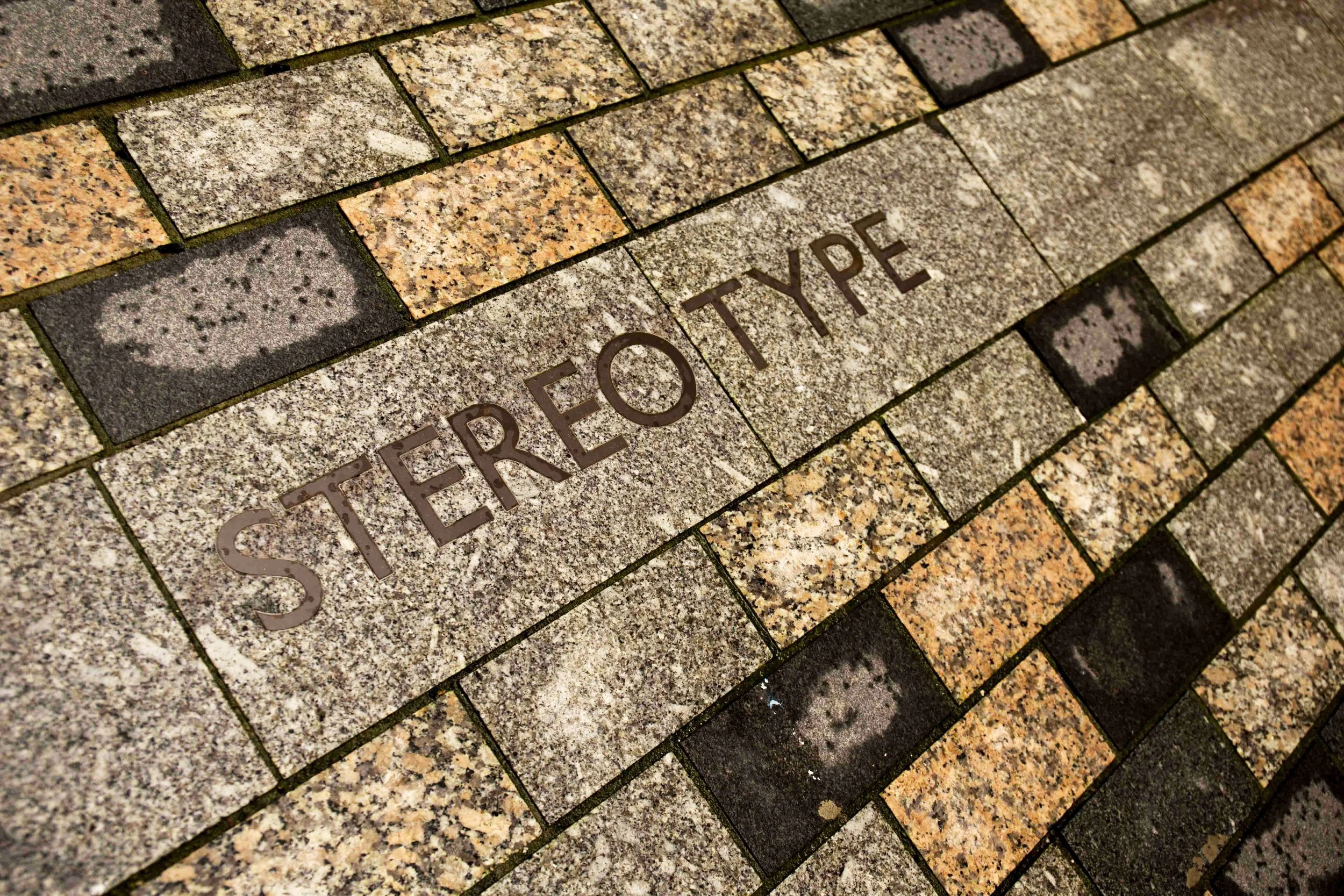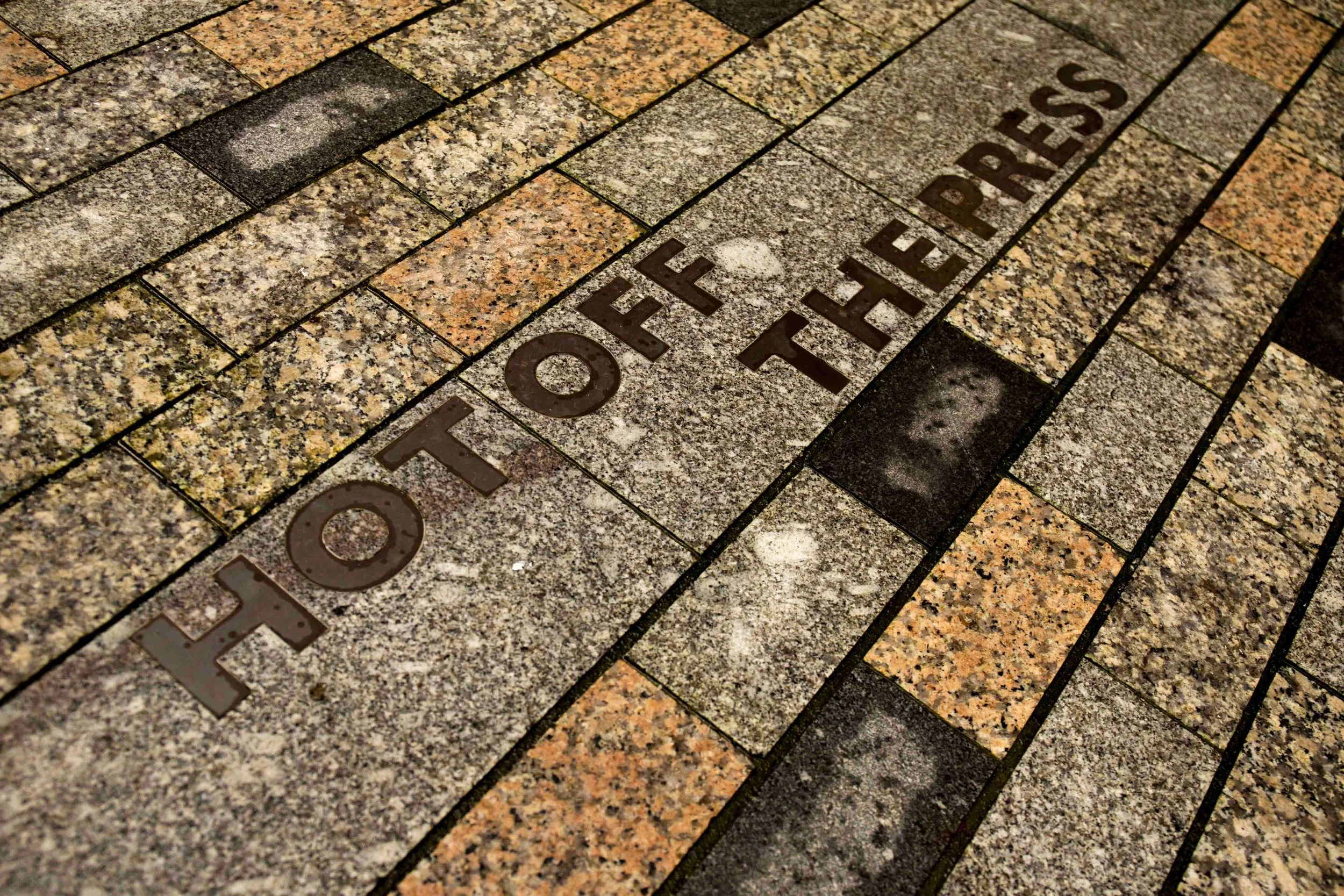Tower Lane Brass Inset Paving
The Department of Small Works set up a letterpress print shop in 2013 in order to protect printing presses and lead and wood type. It runs workshops to show people how to set type by hand and how to use the beautiful old presses. Nick Hand often collaborates with poets, writers, musicians and artists. The surface design for Tower Lane is based around phrases that would have been used by Everards letterpress printers, but now used for a different meaning. This design is a homage to the tens of thousands people in Bristol who worked in the printing trade, and in particular letterpress printers. The Old City was the centre of this skilled industry. Everards in Broad Street was right at the heart of the trade. Every few paces under your feet in Tower Lane, you will see a phrase that came from letterpress, but which has come into common parlance. The fonts are chosen from the fonts that would have been used by Everards who printed timetables for the tram company and technical manuals for BAC (The Bristol Aeroplane Company) as well as many items in common use that would be printed by a jobbing printer such as Everards.
Here are the phrases and their original meanings:
Upper and Lower Case
The type case was key to letterpress. The case was the equivalent of our computer keyboard. It was laid out for efficiency and each area contained a set of one letters (a sort). So the most common letters (vowels) are central near where your hands sat and also the biggest areas as you would use more. Originally the there were two cases one for capitals and one which sat below it for lower case, hence upper and lower case.
Stereo type
In the days of Everards as a letterpress printing company, lead type was set by hand and if a job, such as an advertisement was used more than once, the compositor (who set each letter by hand) may decide to make a stereotype, a moulded copy that would be kept for reprints.
A dab hand
Printers used a ‘dab’ to apply ink onto the letter blocks until they were ready to be applied. Whoever had the job to make sure there was even coverage of the letters with the mushroom shaped instrument was thus graced the title of ‘dab hand’, hence our common use of someone skilled at a certain ability.
Make a good impression
Good letterpress printers have a different idea of what a ‘good impression’ might be. For them it is kissing the paper with lead or wood type evenly and lightly so that ink is evenly and perfectly applied. You can see how ‘Make a good impression’ has come into common parlance as a definition of being the best you can be.
Hot off the press
Newspapers used to be made by the ‘hot metal printing’ process from pouring molten lead into the printing block moulds. The hot newspapers were then distributed, with the first readers grasping the juicy stories before anyone else, leading to its more common meaning of breaking news stories.
Mind your p’s and q’s
Now denoting to minding your manners, the origins though are from the fact that in relief printing letters are back to front, so a p looks like a q and vice versa. Printers had to warn their apprentices when distinguishing between the backward facing lowercase p’s and q’s which often led to confusion and errors.
Out of sorts
For those moving in the printing world, a sort is another name for a single letter of type withing the type case. When you run out of lead type for that letter, you’re literally, out of sorts. This of course is very frustrating for compositors who would have been setting type by hand for several hours and now had to think about starting again with a new more full case of type. Nowadays, when we feel under the weather or a bit grumpy, we’re ‘out of sorts’.
Come a Cropper
Come a Cropper is wildly held in the public’s imagination as derived from the very popular treadle platen press, the Cropper, which was very popular in Victorian times. Any printer who was unfortunate enough to catch his fingers painfully in the moving platen would come a cropper. Hence adopting the phrase is associated with an accident or unfortunate occurrence.
In the days of Everards as a letterpress printing company, lead type was set by hand and if a job, such as an advertisement was used more than once, the compositor (who set each letter by hand) may decide to make a stereotype, a moulded copy that would be kept for reprints.



